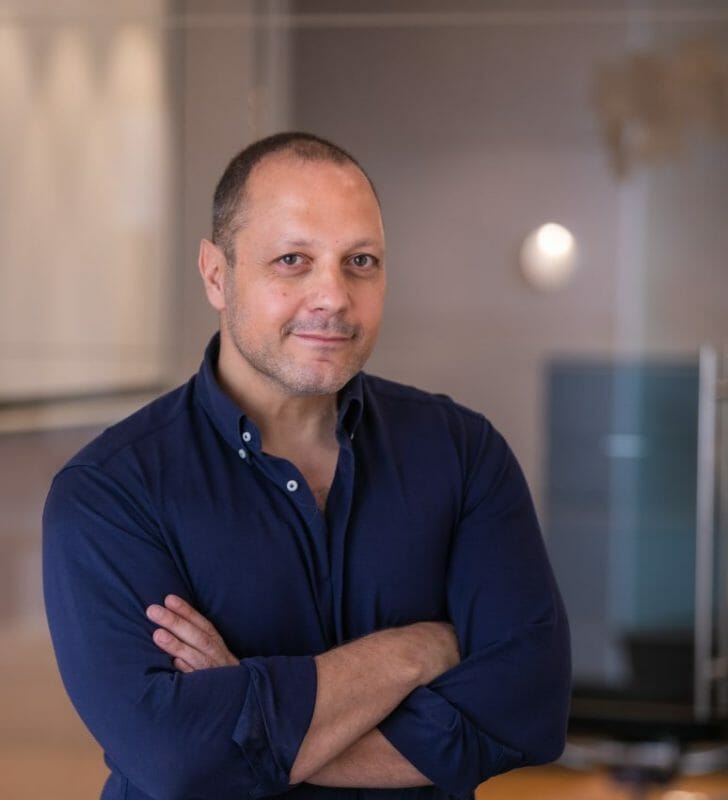The use of voice biomarkers (the unique voice signature of an individual) for the early detection of various diseases is at the forefront of medical-grade speech signal processing and artificial intelligence (AI). The potential of voice biomarkers is advancing and opening new opportunities for diagnoses, risk prediction, clinical outcomes, and symptomology. As one of the most promising digital healthcare sectors, all age cohorts, especially the aging population, may see the most benefit. Taking advantage of the 83% of men and women 50-64 years of age and 61% of people 65 and older who use smartphones, the ability to access diagnostics at home will be available to millions.
Voice biomarkers are the subject of research in cardiology, cancer, Alzheimer’s, cognitive impairment, COVID, and Parkinson’s Disease. In Cardiology, significant advancements are taking place for Congestive Heart Failure (CHF).
As the CEO of Cordio Medical, we are in clinical trials with our HearO system (app -server system) that can detect and predict short-term risk for worsening CHF. Using only patient speech sampled via mobile device, the Cordio HearO® can sense fluid accumulation related to CHF and alert healthcare professionals in real-time prior to potential deterioration. This is the only non-invasive, easy-to-use medical-grade CHF monitoring device that offers patients and caretakers peace of mind and a true sense of control.
CHF is a severe condition in which the heart doesn’t pump blood as efficiently as it should. With more than six million people in the United States and sixty for millions worldwide suffering from CHF, the most common diagnosis in hospitalized patients over 65 it is true pandemic. This prevalence of CHF creates an impossible situation, we don’t have enough healthcare providers for the millions of patients who need their care the most at exactly the right time.
Clinicians know that when heart failure patients become sick and are admitted to the hospital, there are changes in their voice, like breathlessness, and changes in speech patterns indicative of a congested state. Unfortunately, clinicians cannot evaluate changes in patients’ voices daily, and typically, human ears are not sophisticated enough to detect early changes in voice or speech.
Through our sophisticated AI algorithms and one of the largest CHF voice-biomarker databases in healthcare, our Hearo ® app analyzes an individual’s unique voice signature to detect changes in lung fluid content before the patient feel them, or the clinician can perceive them. Suppose altered fluid states in the lungs are detected. In that case, an alert immediately sends a message to their clinician, who can take preventative actions – change medications, require an office visit, and counsel.
A recently published study of outpatients with chronic heart failure preliminarily examined the first 253 patients, representing about 660,000 voice recordings taken daily. The pateintes suffered 55 qualifying heart failure decompensation events. HearO® demonstrated an 80% sensitivity for predicting a heart failure event in this population. And among those 55 events, the app accurately predicted 44 of them 22 days on average before they happened.
While our clinical work continues the path to FDA approval, we must remain aware of the extraordinary benefits to millions of people worldwide when working in the AI and health field. However, Cordio and the entire voice biomarker ecosystem must remain mindful that privacy safeguards must be implemented and comply with various medical regulatory standard such as HIPPA and GDPR and safeguards client data security and privacy.
Voice biomarkers are the future of medical-grade disease diagnostics and will improve speed, accuracy, and accessibility to millions. Cordio mission is to continue and harness speech processing technology to Improve patient quality of life and mortality while contributing to better health economies.
About Tamir Tal: Mr. Tal has been with Peregrine since 2005, involved in M&A, investments, growth finance, funding, and structured transactions and serving as a board member for some of Peregrine’s portfolio companies.
He also serves as CEO at Peregrine’s portfolio company, Cordio Medical, which produces a noninvasive Congestive Heart Failure monitoring device sampled via a smartphone using only a patient’s speech.
Earlier in his career, he served as a corporate lawyer with Shiboleth LLP, focusing on hi-tech sector securities transactions, IPO, M&A, and venture capital investments. Mr. Tal later served as COO at Neovasc Medical Ltd., a cardiovascular medical device company that developed the Neovasc Reducer™ for refractory angina (NASDAQ: (NVCN). I was also COO at Geomage, a leading provider of imaging solutions for the oil and gas industry.
Mr. Tal hold an LLB and an MBA, both from Tel Aviv University.
